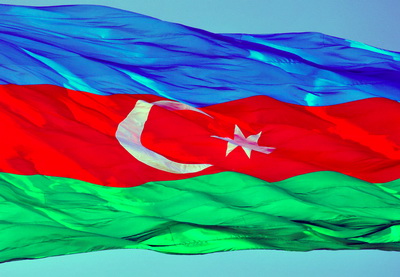The Jerusalem Post: Carrying the literary torch from Baku, the ‘Paris of the Caucasus’

In this heady atmosphere, a core group of thinkers focused on cementing an Azerbaijani national identity.
By DIANA COHEN ALTMAN
As we prepare to embark on 2020, we owe it to ourselves to reflect on the cultural torch-bearers of the 1920s before they pass into history. Without one Azerbaijani-born Jew, Jacques Schiffrin (1892-1950), many of us would have far less insight into, and far less access to, the canon of world literature.
Born in Baku – today the capital of the Republic of Azerbaijan in the South Caucasus, at that time part of the Russian Empire – Schiffrin channeled his European intellectualism into a very American kind of entrepreneurial, culturally democratic initiative.
In 1920, when violent Russian Bolshevik revolutions were unfolding in Baku, Schiffrin’s family elected to leave behind a comfortable home and compatible society. Sadly, they also left behind a society teeming with progressive ideas and cultural prosperity on the dawn of a new modern age.
Azerbaijani society then and now has nurtured artists and thinkers of many backgrounds while making substantial contributions to the world-culture canon. Schiffrin himself thrived as a student during his youth in Baku.
An ancient Silk Road crossroads, Baku in 1920 hosted a diverse population that included Turkic Muslims; Armenian Christians; a range of European expatriates; and even an ancient all-Jewish town (Qırmızı Qasaba, or the “Red Village,” in the Quba district).
Today, the “Mountain Jews” living in Quba and elsewhere in Muslim-majority Azerbaijan remain a shining example of interfaith tolerance in a world all too often plagued by religious conflict. An internationally envied oil boom and subsequent construction boom had transformed Baku into not only a cosmopolitan haven but also an employment destination for engineers, architects, and other professionals.
Jacques Schiffrin’s father, Saveli, made his fortune as an entrepreneur working with the Nobel brothers, who headlined in the city’s storied oil culture. During the Schiffrins’ time, Baku Jewish life proceeded for the most part with little disruption, outside of some isolated political events. Indeed, Baku served as a center for early Zionist thought.
In this heady atmosphere, a core group of thinkers focused on cementing an Azerbaijani national identity. They did so often by bringing together literary and musical achievements from both Azerbaijani and outside-European sources. As East met West, ancient met modern. Civic-society debate thrived, captured in part by publications such as Molla Nasraddin, a satirical magazine. Parliament represented a multicultural citizenry, much as it does today.
By 1920, Azerbaijanis had given women the right to vote – a first in the Muslim East. Jazz had taken hold as it had elsewhere, and native musicians created sophisticated new sounds in association with the Azerbaijani classical music form called mugham. Considered the world’s first Muslim opera, Uzeyir Hajibeyov’s Leyli and Majnun (1908), had enjoyed a popular debut. Local film producers had begun to build Baku’s reputation for early cinema.
BORROWING HEAVILY from Baku’s 1918-1920 zeitgeist, a national novel emerged. To this day Azerbaijanis cite Ali and Nino (1937), attributed to author Kurban Said (pseudonym), earlier attributed to Jewish author Lev Nussimbaum under the pseudonym Essad Bey, as a manual for understanding the Azerbaijani psyche and culture. Azerbaijanis recognized themselves in the epic love story of Baku-born Muslim boy Ali and Georgian-Christian-princess Nino.
Many drawn to Baku during this period saw a bustling Caspian port city where a 12th-century tower seemed to fit with early 20th-century mansions. The moniker “Paris of the Caucasus” was born as Baku’s ethnic makeup transformed the city, setting the stage for modern Azerbaijan. Soviet attraction to Baku’s commercial and strategic promise induced the birth of the Azerbaijani Soviet Socialist Republic (SSR) in 1920. Whereas the Russian language already featured in Baku’s multilingual atmosphere, the Soviet period introduced new cultural flavoring to the Azerbaijani national identity.
As Baku was adapting to life under Soviet rule, Jacques Schiffrin was founding Les Éditions de la Pléiade/Bibliothèque de la Pléiade, an important editorial literary collection, in Paris. After the Nazi-influenced Vichy government stripped him of his job in 1940, he fled to New York City, aided by French author André Gide and US journalist/Holocaust rescuer Varian Fry.
Schiffrin joined the flourishing 1940s New York literary publishing scene. His acclaimed work at Pantheon Books included identifying and extending affordable editions of classical literary works as well as introducing new authors. When Schiffrin died in 1950, his son André kept alive the remarkable Schiffrin legacy at Pantheon.
In 2020 we will have new opportunities to illuminate cultural triumphs beyond our own horizons. Let us remember those who 100 years ago carried the literary torch into a new modern world – Jacques Schiffrin and others who insisted on transmitting the highest products of human thought while rising above the fray. Let us also recognize the multi-cultural societies previously little known to most Westerners that have nourished great cultural achievements. Azerbaijani multiculturalism continues to earn praise from Jewish leaders and others in the international community.
Honoring Azerbaijani-born Jew Jacques Schiffrin is one step toward embracing a fuller understanding of the human story.
The writer is principal of Cultural Diplomacy Associates, LLC, a former exhibition editor at the Smithsonian Institution and former executive director of the Karabakh Foundation, a cultural charity organization that preserves the heritage and traditions of Azerbaijan and the Caucasus area. She also directed the B’nai B’rith National Jewish Museum and Archive.














